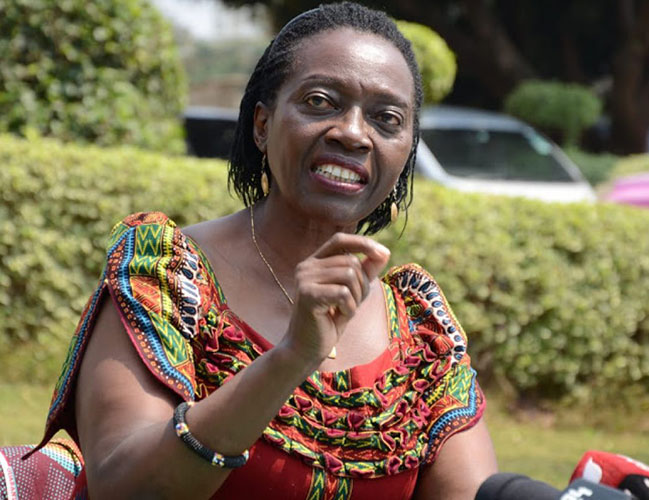Nairobi – Veteran Kenyan politician Raila Odinga announced on Monday that he has chosen the country’s ‘iron lady’ Martha Karua to serve as his running mate in the presidential election due in August.
If the pair win the high-stakes polls, Karua – a lawyer and former justice minister – would become Kenya’s first female deputy president.
“Following tense consultations, we have decided that the holder of this office has to be a woman,” Odinga said.
Karua, a former presidential candidate herself, earned the moniker ‘iron lady’ as she rose through the male-dominated ranks of Kenyan politics.
“History is calling us to close the gender gap in our country… cometh the hour, cometh the lady,” said Odinga, describing Karua as a reformist, fighter and a safe pair of hands.
ALSO READ | Kenya presidential hopeful Ruto picks ex-Kenyatta aide as running mate
Karua said she was “deeply honoured” to accept the nomination, describing it as “a moment for the women of Kenya”.
“Together, we can finally bring to life the dreams deferred,” she told thousands of cheering supporters in the capital Nairobi.
The announcement came a day after Odinga’s rival, Deputy President William Ruto, picked a former aide turned fierce critic of President Uhuru Kenyatta to be his running mate.
Rigathi Gachagua, who served as Kenyatta’s personal assistant between 2001 and 2006, was chosen after a secretive, months-long process marked by intense lobbying.
History is calling us to close the gender gap. As Azimio we have today taken a key step towards that end.#RailasRunningMate #Inawezekana pic.twitter.com/uzoK3BolYQ
— Raila Odinga (@RailaOdinga) May 16, 2022
A veteran of Kenya’s pro-democracy movement, the 64-year-old Karua once walked out on the country’s former autocratic leader Daniel arap Moi at a public function.
Brought up in a rural area of central Kenya, Karua – an ethnic Kikuyu – was appointed a magistrate aged 24, before becoming an MP a decade later.
She was a staunch supporter of former president Mwai Kibaki, vociferously defending his disputed 2007 election victory — which Odinga claimed was stolen from him. More than 1,100 people died in politically motivated post-poll violence.
In 2009, the outspoken minister resigned from Kibaki and Odinga’s coalition government, citing interference in the discharge of her duties.
Tribal allegiances
This year’s presidential contest is shaping up to be a two-horse race between Ruto and 77-year-old Odinga, a former prime minister who has secured Kenyatta’s support.
Kenyatta cannot run again for re-election having served the maximum two terms.
A mainstay of Kenyan politics, Odinga remains hugely popular despite losing four shots at the presidency.
But his fiery anti-establishment image took a knock following his reconciliation with Kenyatta.
Ruto, 54, was initially anointed by Kenyatta as his successor but found himself marginalised after the 2018 pact between the president and former foe Odinga.
Ladies and Gentlemen, people of Kenya, family and friends, I am deeply honoured by the decision to nominate me as the Deputy Presidential Candidate for the Azimio La Umoja One Kenya Coalition Party. I stand before you fully aware of the implications and symbolism of this moment. pic.twitter.com/TzFGH5EbDZ
— Martha Karua SC (@MarthaKarua) May 16, 2022
The choice of a deputy president will play a key role in determining the winner of the August 9 poll, with tribal and community allegiances affecting the outcome of previous elections.
The East African powerhouse has traditionally been ruled by presidents from the dominant Kikuyu tribe like Kenyatta or the Kalenjin tribe like Ruto.
After post-election fighting in 2017 left dozens dead, Kenyatta and Odinga announced a rapprochement, saying they hoped to end repeated cycles of poll-related violence.
Follow African Insider on Facebook, Twitter and Instagram
Source: AFP
Picture: Twitter/@uda_hustler
For more African news, visit Africaninsider.com


